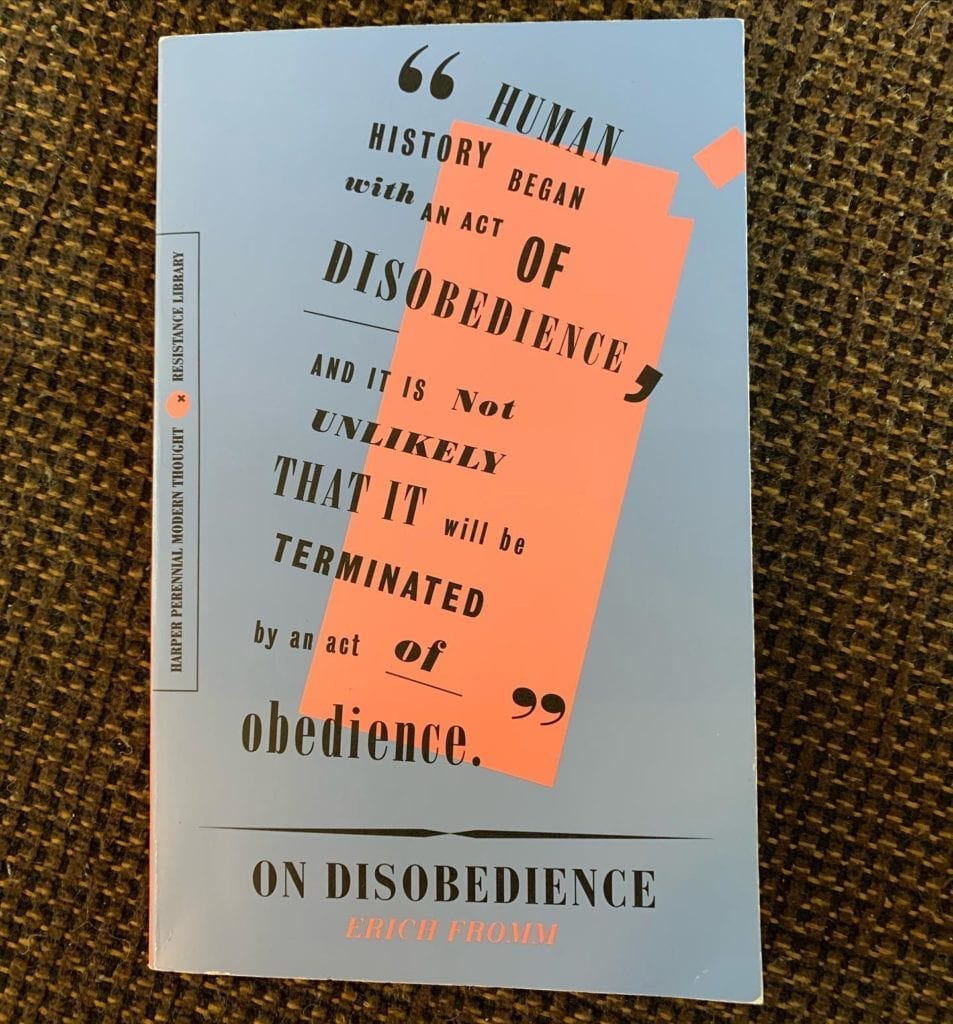Books: On Disobedience: 'Why Freedom Means Saying "No" to Power by Erich Fromm
Today’s book recommendation is “On Disobedience.” We don’t recommend this as a fashionable punchline because disobedience is supposed to be a libertarian’s knee jerk reaction. It’s a much deeper look at the concept. This is part of a set called the Resistance Library.
Click here for past recommendations.
Description
A part of Harper Perennial’s special “Resistance Library” highlighting classic works that illuminate the “Age of Trump”: A striking reissue of Erich Fromm’s classic work on the existential importance of resisting the forces of authoritarianism, and how disobedience is essential to freedom.
“Human history began with an act of disobedience, and it is not unlikely that it will be terminated by an act of obedience.”—from On Disobedience
In On Disobedience, Erich Fromm writes that the authoritarian dictatorships of the 20th century produced an “organization man” to follow directives blindly, no matter how abhorrent. At the same time, a kind of conformity has arisen in western democracies, only brought about by more subtle means of massive consumerism. In democracies, where the power to implement irreversible destruction rests in the hands of the few, the individual also needs to retain his ability to dissent and to speak “no” to those in power.
In the face of these conformist pressures in whichever form they take, modern man must seek an authentic expression in order to retain his deepest sense of self. Fromm sees both capitalism and totalitarian communism moving toward a life-denying industrial bureaucracy, and berates the one system for ignoring, the other for betraying, the ideals of a true humanistic socialism in which people take precedence over things, life over property, and work over capital.
Both to ensure humankind’s preservation and for man to reclaim an authentic sense of self, Fromm maintains the necessity of the freedom to dissent. Of this form of disobedience, he writes, “it is not primarily an attitude directed against something, but for something: for man’s capacity to see, to say what he sees, and to refuse to say what he does not see. To do so he does not need to be aggressive or rebellious; he needs to have his eyes open, to be fully awake.”
As timely today as when it was first published, On Disobedience is a significant work of the 20th century that generations of readers will turn to for inspiration.


